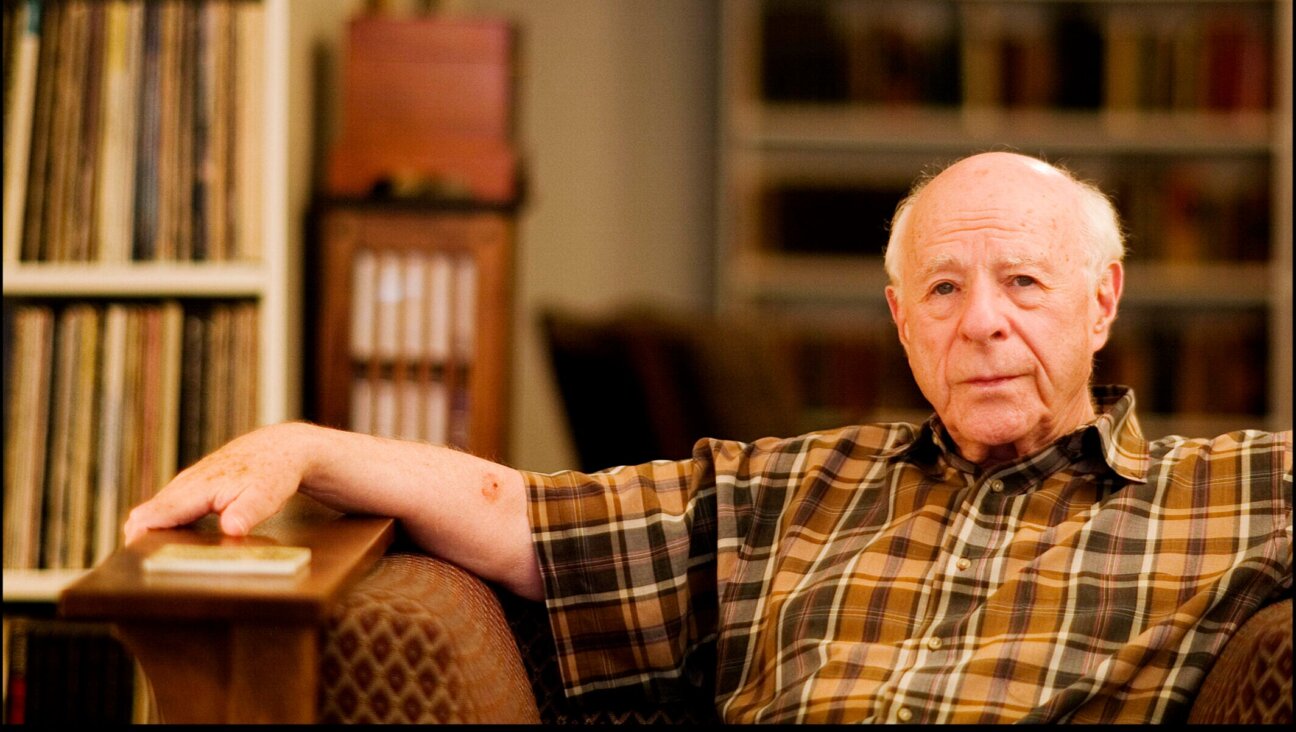Five Takeaways From the Israeli Elections

Image by Getty Images
(JTA) – In the United States, the magic number on Election Day is 270, the number of Electoral College votes needed to win the presidency. In Israel, it’s 61, the number of seats needed to capture a majority in the 120-seat Knesset — and with it, the premiership.
With Prime Minister Benjamin Netanyahu’s Likud party running just ahead of Isaac Herzog’s Zionist Union — the results as of late Tuesday show Likud with 27 or 28, and Zionist Union with 27 or 26 — there are a number of things to consider as the next Israeli government takes shape:
1. Netanyahu is not much better off than he was before — except that he probably won.
The prime minister likely will manage to secure an unprecedented fourth term, but it’s not all good news for the leader some refer to as “King Bibi.”
Yes, Likud captured nine or 10 more seats than it has in the current Knesset (18), but the right-wing and Orthodox bloc in the Knesset has shrunk, from 61 seats to 53 or 54 seats.
After the 2013 elections, Netanyahu chose to make a coalition with Yair Lapid’s centrist Yesh Atid party rather than with his traditional haredi Orthodox coalition partners, but friction with Yesh Atid ultimately prompted Netanyahu to dissolve his government and call for new elections.
To obtain a ruling majority in the 120-seat Knesset now, Netanyahu needs the haredi parties as well as one of the two centrist parties — either Yesh Atid or the new Kulanu party, led by ex-Likudnik Moshe Kachlon. But it’s not clear that coalition would be very stable.
Netanyahu does have an alternative: a national unity government with Herzog’s party.
2. The left wing has gained ground.
Compared with the current Knesset, the left and center-left has emerged stronger. Zionist Union (27) and Meretz (5) together have three more seats than the 29 seats controlled by left and center-left parties (Labor, Hatnua, Kadima and Meretz) in the current Knesset. Throw in the Joint Arab List (13) with the left wingers (Netanyahu does), and that’s two additional seats the left wing has picked up, for a grand total of 40.
But Herzog is still very far from the premiership. For his party to triumph, he’d have to snag Meretz and bring both centrist parties into the coalition plus one or more religious parties — probably Shas and United Torah Judaism, which together have 13 seats. His other options — the Jewish Home party, led by right-winger Naftali Bennett (8 seats — down from 12), or the Arab list, which has vowed not to join any coalition government — are more far-fetched.
Even if Likud ends up running the government, however, the Zionist Union gives Israel a far more robust opposition party — or a key coalition partner if Netanyahu and Herzog accede to President Reuven Rivlin’s call to establish a national unity government.
3. The kingmakers will be the centrists.
The Knesset’s two centrist parties together won 21 seats on Election Day — 11 for Yesh Atid and 10 for Kulanu. Barring the unlikely event of a unity government, one or both of them will be a must-have for the winner to reach the magic number of 61.
Given Netanyahu’s problems with Yesh Atid and the composition of Kulanu’s list, Netanyahu already is courting Kulanu. The party boasts a number of veterans of right-wing parties, including Kachlon (ex-Likud), Michael Oren (served as Israel’s ambassador to Washington under Netanyahu) and Tali Floskob (mayor of Arad and a former Yisrael Beiteinu member). Two deputies to Jerusalem’s right-wing mayor, Nir Barkat, also are on the Kulanu list.
The enduring strength of the centrist parties — even though much of it came at Yesh Atid’s expense (which fell from 19 seats to 11) — also demonstrates the seriousness with which Israeli voters consider the socioeconomic issues that Kulanu and Yesh Atid made the centerpiece of their campaigns. Israeli elections are no longer just about security, particularly at a time when few Israelis see a viable way to overcome the morass with the Palestinians and the threats posed by upheaval in the Arab world.
4. The Arabs are a force to be reckoned with.
The forced combination of the Knesset’s Arab parties into the Joint Arab List — prompted by a new rule raising the minimum threshold for entry into the Knesset to 3.5 percent of votes cast — has strengthened their hand. Even though Arab Israeli turnout was lower than Jewish Israeli turnout, it was still higher than usual. Now the Arabs control two additional Knesset seats and have a more unified voice.
5. Netanyahu showed his true colors.
Israeli Prime Minister Benjamin Netanyahu did two things in the final hours of Israel’s election campaign that make it difficult to see how he’d repair Israel’s image overseas – and its frayed relationship with the United States.
One was his open acknowledgment in an interview published Monday that he opposes Palestinian statehood.
“I think anyone who is going to establish a Palestinian state and to evacuate territory is giving radical Islam a staging ground against the State of Israel,” Netanyahu told the Israeli website NRG. “This is the reality that has been created here in recent years. Anyone who ignores it has his head in the sand.”
When asked point-blank “If you are a prime minister, there will be no Palestinian state?” Netanyahu responded, “Indeed.” The second was Netanyahu’s brazen warning on Election Day that Likud supporters ought to rush to the polls because Israeli Arabs were turning out in large numbers.
“Right-wing rule is in danger. The Arab voters are coming in huge numbers to the polls. The left-wing organizations are bringing them in buses,” Netanyahu said in a message posted on social media Tuesday urging followers to vote for Likud.
“With your help, and with God’s help, we will establish a patriotic government that will safeguard the State of Israel.”
Both remarks provide ample fodder for critics of Netanyahu – and of Israel: that he (and by extension is Israel) is disingenuous about pursuing a peace deal with the Palestinians, and that he (and by extension Israel) is racist.
If Netanyahu wins, he will become Israel’s longest-serving prime minister in history. Love him or hate him, this is the face of Israel.














